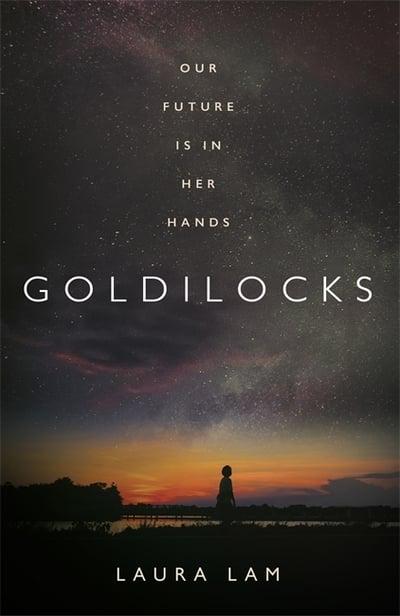
After a weird apocalypse called The Storm that seems to have killed most people on Earth, 17-year-old Liz lives alone in the bookshop where she used to work, occasionally trading books for useful items. But when the more hardbitten Maeve shows up, the two girls fall in love. But is the world about to end all over again?
This book sounded so up my alley. Alas, it was not good. In fact it was kind of the bad lesbian version of Erik J. Brown's All That's Left in the World.
Given the title, you'd think the story would involve books and reading and how they matter even after the apocalypse - a kind of bookstore version of Station Eleven. It's not that at all. A lot of books are mentioned in passing, but "books are important" is not a theme, and reading isn't important to the characters. Liz is living in the bookshop out of trauma and inertia, not because it's her passion or a community center or it feels like home.
Liz is so incredibly helpless and useless, it's hard to believe she survived normal life let alone a post-apocalypse setting. When the tap water stops running, she's unsurprised but also has only one day's worth left stored up in bottles - and it's been running for months, with her expecting it would stop running any moment the whole time! She doesn't bother to lock the front door of the bookshop, even when she goes to sleep. There's all sorts of dangerous damage to the shop that she doesn't know how to or doesn't bother to try to repair, AND doesn't ever ask for help with even though a fair number of friendly people come to her shop. I get that she's supposed to be paralyzed by trauma but she also comes off as a passive nitwit.
Even apart from Liz herself, a lot of stuff in the story makes no sense. Liz literally hasn't left the bookstore in months, she only gets a customer every couple days if that, and the customers only give her small items like a couple batteries for a book. How is she getting enough food to stay alive?
When Maeve turns on a small generator and it doesn't come on immediately, Liz leaves it switched on and tries to manually start it by sticking her hand inside it and giving the fan a spin. (Amazingly, she does not precede this by saying, "Hold my beer.") It promptly turns on and starts sucking her entire body into it, like it's a jet engine.
This gives Liz an extremely severe injury - the skin is ripped off her hand, bones and tendons are visible, and she can't move her fingers at all - but she's basically fine two days later after some extremely vaguely described first aid.
Liz realizes Maeve might be dangerous because she has a prized and valuable knife whose blade is caked with blood. If it's that valuable, YOU'D CLEAN IT.
People mostly use knives as weapons instead of guns for no reason. When someone does have a gun, it's not loaded. I guess guns and bullets are super rare in America!
The apocalypse is a one-time rain of acid that melts everyone who was outside at the time. No one ever mentions that this is fucking bizarre, or speculates on why it happened. The set-up in the pre-apocalypse flashbacks is that a climate change catastrophe is ongoing, but that does not include LITERAL ACID RAIN.
Also, the world is way too depopulated for a one-time event that happened at night, when not many people would be outside, and spared everyone who was inside. There's barely anyone left in Liz's entire town, and we meet something like ten survivors max in the entire book.
It also makes no sense that an acid strong enough to completely dissolve a human in 20 minutes did so little apparent damage to anything else. All the structural damage that's described is what you'd expect from a tornado, not a 20 minute downpour of extremely strong acid.
Liz and Maeve's relationship was boring and barely there. Actually, the whole book was boring. I ended up skimming heavily.
There's some interstitial bits where people write one-page first-person accounts of their survival in a notebook Liz keeps. This sort of thing is almost always so much fun, people recall it as their favorite part of the book. All but one of these bits are boring! How do you even do that?! (The one that I liked was a woman whose dogs saved her from the acid rain by refusing to go on their regular night time walk.)
Spoilers for the end. ( Read more... )

















